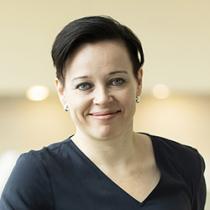In recent years, the promotion of human rights has become increasingly topical for companies as it is an issue that concerns us all. Most important thing in this work is the will to do the right thing, the courage to see and identify the various challenges and risks, and the skill to lead goal-oriented human rights work through concrete actions. Human Rights Day is an opportunity to stop and consider the most relevant human rights issues today, how they are developing and how they might be influenced. I would also like to share some of my main observations and experiences in managing human rights.
When it comes to human rights risks, we must consider how our own actions affect people and communities instead of focusing on the business risks caused by external factors. This perspective differs from normal risk management processes and also helps us argue why the severity and probability of risks in human rights work need to be assessed in a different manner.
Furthermore, the concepts of human rights have to be defined clearly. It is important to be able to describe and understand the connections between various human rights-related approaches and the activities, value chains and customer interfaces of a company, what are the existing processes and policies and what needs to be developed further. The frame of reference matters and needs to be taken into account in the goal-oriented management of human rights.
Three important standpoints
Companies have learned to identify and manage various human rights issues connected to global supply chains, such as matters related to occupational safety and employees' rights. The COVID-19 pandemic has only heightened the importance of sustainable sourcing. The big question in this exceptional situation is how to operate in a manner that helps our partners overcome the additional challenges brought on by the pandemic. As we consider human rights in global supply chains, it has become increasingly important to also pay attention to matters that are close to us. In this regard, I would like to highlight three issues.
The first is safety and well-being at work. Remote work has become the norm for many of us during the COVID-19 pandemic, but it has not been possible for everyone. This is why at Paulig we have made an effort to give all our employees an equal opportunity to work safely regardless of their place of work or task. My colleagues have actively updated instructions for our offices and production sites and implemented several concrete measures, such as staggered meal breaks and signage reminding everyone to maintain physical distancing to make it safe to work at our premises. Extended periods of remote work can be challenging also in terms of ergonomics and coping. This is why we organise mobile breaks and mindfulness moments for our employees on a weekly basis. As the saying at Paulig goes: Yes, we care – now and in the future.
Second, I would like to highlight the issue of minority rights. There is still a lot to be done in this particular field as the recently published Equality Strategy 2020–2025 of the European Union states that 20% of gender and sexual minorities still experience discrimination in working life and more than 50% almost never or rarely disclose their true identity. We all need to work against discrimination and towards making our work community safe and inclusive for everyone. I want to set an example and promote well-being in our work community through my own actions. In a recent survey we asked our employees about the state of diversity and inclusiveness at Paulig. The scores were excellent (86/100), which shows that our employees think that people at Paulig are treated equally and different opinions are heard.
Finally, I would like to highlight children’s rights. In this respect in particular, it is essential we keep our focus on what’s happening now as the need for help has increased due to COVID-19. Fortunately, our partner organisation SOS Children’s Villages Finland has a service called Apuu-chat that offers help to children in distress. At Paulig, our task is to increase awareness of this form of support. We will continue our long-term partnership with SOS Children’s Villages as we want to be involved in creating well-being for the next generations.
Respect for human rights stems, first and foremost, from will and values. However, transformation and progress require comprehensive and sustained development work. We are committed to that. It is also why a fair and inclusive way of working is one of the focus areas in Paulig’s sustainability programme.
